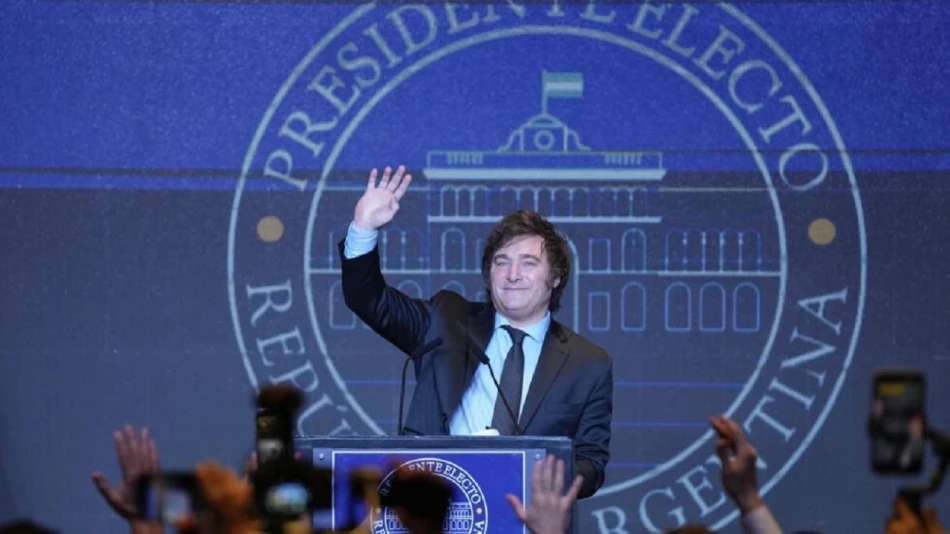
Argentinian President Suffers Crushing Defeat in Buenos Aires Elections
Milei's Crushing Electoral Defeat Signals Trouble for Argentina's Economic Reform Agenda
Argentine President Javier Milei suffered a devastating electoral blow in Buenos Aires province, losing by 13 percentage points to the leftist Peronist opposition in what many consider a critical test of his libertarian agenda ahead of crucial congressional midterms. The defeat raises serious questions about the sustainability of his ambitious economic reforms and could rattle investors who have been cautiously optimistic about Argentina's market-friendly pivot.
The Numbers Tell a Stark Story
Milei's newly-formed "La Libertad Avanza" (Freedom Advances) party managed only 34% of the vote in Argentina's largest and most politically significant province, while the Peronist opposition secured 47%. This 13-point margin represents more than a simple electoral setback—it's a potential referendum on the president's shock therapy approach to fixing Argentina's chronic economic crisis.
Buenos Aires province, home to nearly 40% of Argentina's population, has historically served as a bellwether for national political sentiment. The province's voters have now delivered a clear message of discontent with Milei's policies, just months into his presidency.
A President Under Pressure Acknowledges Reality
In a rare moment of political humility, Milei conceded the defeat was "clear" and promised to "absorb" any political mistakes his administration had made. Speaking to dejected supporters at party headquarters, he struck an unusually reflective tone: "We suffered a setback, and we must accept it responsibly."
However, the president remained defiant about his core economic agenda, insisting there would be "no retreat in government policy." This stance could prove problematic if his reform program continues to face popular resistance.
Economic Reforms at a Crossroads
Milei's comprehensive economic overhaul—featuring aggressive spending cuts, deregulation, and plans to dollarize the economy—was designed to tackle Argentina's triple-digit inflation and chronic fiscal deficits. Similar to shock therapy programs implemented in Eastern Europe during the 1990s, these reforms typically require sustained political support to succeed.
The Buenos Aires defeat suggests that support may be eroding faster than anticipated. Unlike countries such as Chile or Peru, which successfully implemented market reforms with broader consensus, Argentina's polarized political landscape makes sustained policy continuity particularly challenging.
Market Implications and Investor Concerns
International investors, who initially welcomed Milei's election as a potential turning point for Argentina's economy, now face renewed uncertainty. The country's sovereign bonds and currency could experience volatility as markets reassess the political viability of the reform program.
Argentina's history of policy reversals—from the convertibility plan of the 1990s to various populist experiments—makes investors particularly sensitive to signs of political weakness. The upcoming congressional midterms in late October will likely determine whether Milei can maintain legislative support for his agenda.
Corruption Scandals Compound Political Troubles
The electoral defeat comes as several of Milei's close associates face corruption allegations, further undermining his administration's credibility. These scandals have provided ammunition for Peronist opponents who argue that the new government represents more of the same political dysfunction, despite its anti-establishment rhetoric.
The timing of these revelations, just weeks before the congressional elections, suggests that Milei's political honeymoon period has ended abruptly. His ability to present himself as an outsider capable of cleaning up Argentine politics has been significantly damaged.
What This Means for Argentina's Future
The Buenos Aires result indicates that Argentine voters may be having second thoughts about Milei's radical approach to economic reform. While his libertarian message resonated during the presidential campaign amid economic crisis, the reality of implementing painful adjustments appears to be testing public patience.
If this trend continues into the congressional midterms, Milei could find himself governing with a hostile legislature, making further reforms nearly impossible. This scenario would likely force a moderation of his agenda or potentially lead to the kind of political gridlock that has historically plagued Argentina's efforts at economic stabilization.
Most Viewed News

 Sara Khaled
Sara Khaled






